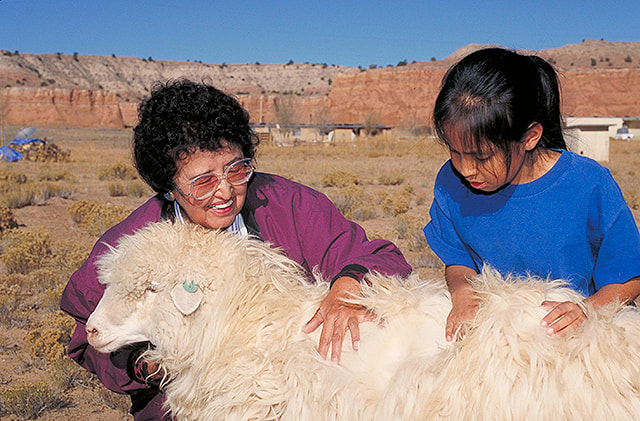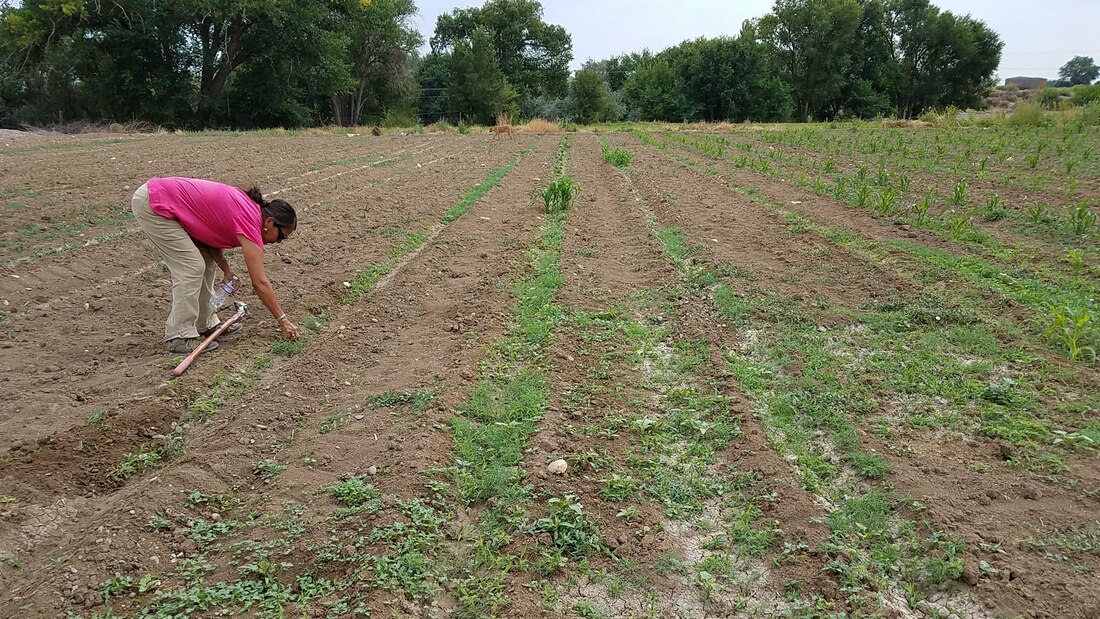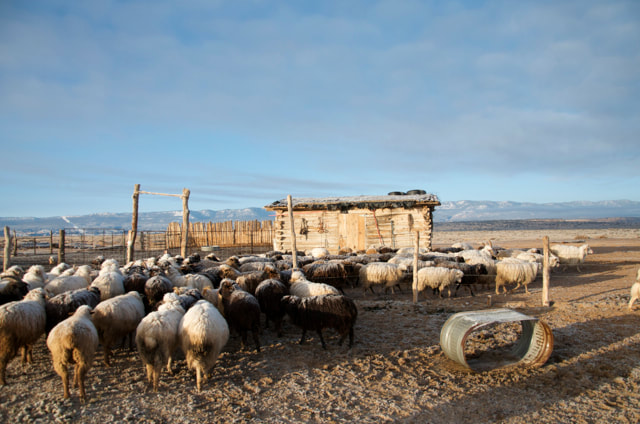Diné Maternal Family
Tribal clan members on a historical Diné settlement are considered "immediate family." Relations are different from non-Navajo families. For example, mother's sisters are all mothers to a child, and all their children are collectively brothers and sisters. But, father's side are less intimate. This is because Diné immediate families flow on the maternal line. Yet, father's brothers have a responsibility to step into father's role to look after sons, if anything happens to father. Additionally, every family has its traditional healer or teacher. All this can be confusing to those who are unfamiliar with Diné family life.
Before the reservation era, maternal families stewarded cultivation of farms and livestock. Today, family ties are more fragile. With tight land regulations that have gotten more complex and even tighter over time, with poverty and unemployment between 38% and 55%, and with only a handful of the reservation's 110 chapters having services and employment, the historical settlement communities have all but vanished.
People will tell you that every traditional Diné family has at least one family member who plants and farms in the traditional way. Often, they do this under tremendous hardship, all by themselves far away from urban life. However, all who pursue the Diné way of life are struggling with limited time and finances, and with extremely limited infrastructure. Even patience can be scarce. Families with extra health problems need to be supported to support each other in addressing the traditional life and health.
In many parts of the Navajo Nation, drinking and feed water must be hauled. Irrigation water reaches small farms via culverts and ditches often broken. There is no trash service. Restaurants reservation-wide invariably serve fast food, and gas station convenience stores serve processed foods. A vehicle, including gas to run it, becomes critical to handle food-health and basic needs and especially to maintain home cleanliness. When our vehicles fail, our families face profound home and health maintenance challenges that are inter-related and complex, including difficulties in getting to the support workshops and groups that we need.
What this means is Diné families need nutrition and even basic care supports that other people may take for granted. Support networks take on tremendous importance.
Before the reservation era, maternal families stewarded cultivation of farms and livestock. Today, family ties are more fragile. With tight land regulations that have gotten more complex and even tighter over time, with poverty and unemployment between 38% and 55%, and with only a handful of the reservation's 110 chapters having services and employment, the historical settlement communities have all but vanished.
People will tell you that every traditional Diné family has at least one family member who plants and farms in the traditional way. Often, they do this under tremendous hardship, all by themselves far away from urban life. However, all who pursue the Diné way of life are struggling with limited time and finances, and with extremely limited infrastructure. Even patience can be scarce. Families with extra health problems need to be supported to support each other in addressing the traditional life and health.
In many parts of the Navajo Nation, drinking and feed water must be hauled. Irrigation water reaches small farms via culverts and ditches often broken. There is no trash service. Restaurants reservation-wide invariably serve fast food, and gas station convenience stores serve processed foods. A vehicle, including gas to run it, becomes critical to handle food-health and basic needs and especially to maintain home cleanliness. When our vehicles fail, our families face profound home and health maintenance challenges that are inter-related and complex, including difficulties in getting to the support workshops and groups that we need.
What this means is Diné families need nutrition and even basic care supports that other people may take for granted. Support networks take on tremendous importance.



